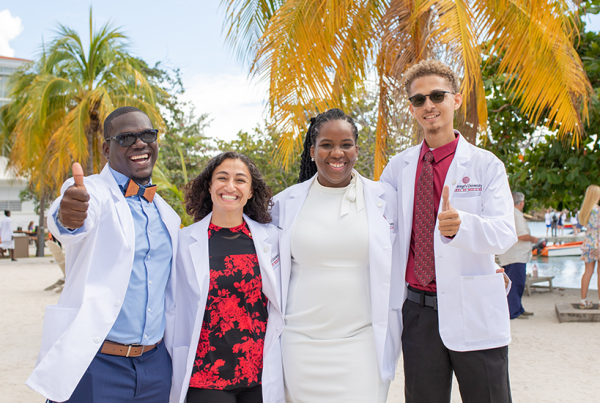For International Doctor’s Day on 1st October, St. George’s University (SGU) School of Medicine in Grenada, West Indies has provided tips to help medical professionals achieve a good balance between work and personal time.
The specialties with favorable work-life balance
In-demand fields like primary care offer more flexible schedules, making it easier for doctors to juggle personal and professional responsibilities. “Primary care is unique in medicine because of its flexibility,” says Dr. Linda Girgis, SGU alumna and primary care doctor in New Jersey. “Many physicians now practice outpatient medicine, avoiding late-night hospital admissions. Options like private practice or working under a hospital system each have their benefits and challenges.”
Work-life balance is achievable in specialties beyond primary care, though it may require a different approach. Procedure-oriented specialties often demand long hours and early mornings. Physicians in these fields must be intentional about scheduling time for work and home.
Tips for preventing burnout
“Eat well, exercise, get enough sleep, and don’t neglect your friends and family more than necessary,” advises Dr. David Thomas, SGU alumnus and advanced fellow for transplant and oncology infectious diseases at Moffitt Cancer Center. “Finding balance is key to improving your practice.”
Doctors with the best work-life balance often cultivate lasting healthy habits. For some SGU graduates, this balance started on campus. Dr. Ifeatu Egwuatu, SGU alumnus and internal medicine resident, attributes his ability to juggle multiple responsibilities to his time at SGU. “Managing my time effectively allowed me to excel in both medical school and extracurriculars,” he says.
Dr. Nanditha Guruvaiah, SGU alumna and internal medicine preliminary resident, emphasizes the importance of planning ahead and self-care. “Achieving the perfect work-life balance is still a work in progress. Planning and reserving time for self-care are critical to avoid burnout,” she explains.
Practice what you preach
Physicians may want to consider implementing the advice they often give to their patients. Medical professionals know more than anyone about the long-term consequences of stress caused by burnout. Prioritizing your well-being will set a good example for your patients to prioritize their well-being.
Dr. Garima Gupta, SGU alumna and oncologist, says: “The key is making it a priority and maintaining mental health to prevent burnout,”.
Balancing a medical career with other aspects of life is challenging but achievable. Prospective medical students should not be deterred by work-life balance concerns. SGU graduates across various medical fields have successfully navigated this balance.
For more information on the programs and tracks available through St. George’s University School of Medicine, visit SGU’s website.



